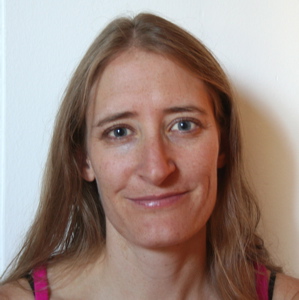Computational Textiles and the Democratization of Ubiquitous Computing
 Leah Buechley, University of Colorado
Leah Buechley, University of Colorado
leah![]() thehighlowtech.com
thehighlowtech.com
Seminar on People, Computers,
and Design
Stanford University April 25, 2008
Computational textile researchers weave, solder and sew electronics into cloth to build soft, flexible and wearable computers.
Computational textiles or "e-textiles" is a young discipline, and developments in the field have so far been relegated almost exclusively to research labs in industry and academia. This talk will present advancements that make the designing and building of e- textiles accessible to new audiences, describing developments in engineering, design and applications that are helping to democratize creative ubiquitous computing. It will:
- detail techniques that enable researchers (and others) to integrate electronics with cloth, including a method for creating printed circuit boards on fabric
- provide demonstrations of several novel e-textile designs, including a programmable beaded bracelet, and
- discuss educational applications of e-textiles.
The discussion of educational e-textiles will focus on the development of the commercially-available LilyPad Arduino, a construction kit that enables novices to build their own soft computers by sewing microcontroller, sensor, and actuator modules together with conductive thread. The construction kit was developed through an iterative design process that involved several user studies, and preliminary results indicate that the kit could provide a powerful means to engage diverse audiences in ubiquitous computing, and computer science and electrical engineering more generally.
![]()
Leah Buechley received her PhD in Computer Science from the University of Colorado at Boulder in December 2007 and is currently a postdoctoral researcher there, where she works with the Craft Technology group. Her research explores the intersection of ubiquitous computing, human computer interaction and education. It investigates these topics primarily through computational textiles or e-textiles--soft, flexible, fabric-based computers. Her work was the recipient of the best paper award at the 2006 International Symposium on Wearable Computers and has been featured in Popular Science, the Boston Globe, CRAFT Magazine, the Journal of Architectural Design, the Denver Post, and the Taipei Times. She holds MS and PhD degrees in Computer Science from the University of Colorado at Boulder and a BA in Physics from Skidmore College.
![]()
View this talk on line at CS547 on Stanford OnLine or using this video link.
Titles and abstracts for previous years are available by year and by speaker.